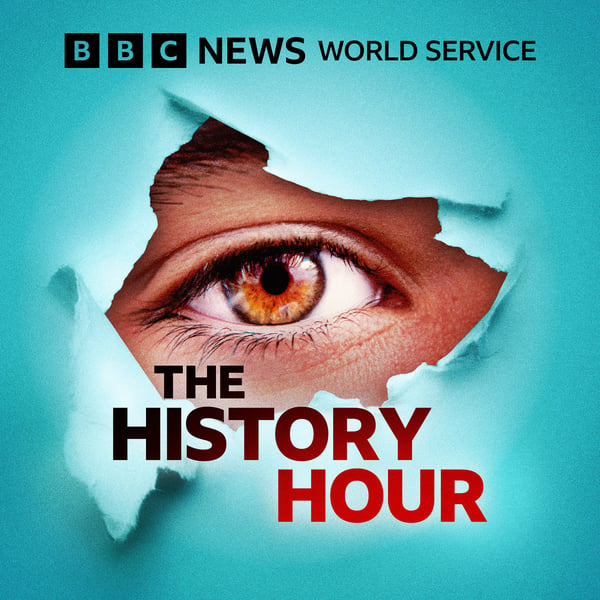Referendums and cannibalism
The History Hour
BBC
4.4 • 879 Ratings
🗓️ 21 December 2024
⏱️ 51 minutes
🧾️ Download transcript
Summary
Max Pearson presents a collection of the week's Witness History interviews from the BBC World Service. Our guest is Professor Chandrika Kaul, a specialist on modern British and Imperial history at the University of St Andrews in the UK.
We start by hearing from both sides of Australia's 1999 referendum on becoming a republic.
Then, a survivor recounts the horrific 1972 Andes plane crash and the extraordinary things he had to do to survive.
We hear how the BBC put text on our television screens for the first time.
Plus, a grieving mother recounts the Taliban's horrific 2014 attack on a military school in Pakistan.
Finally, we hear how the communist authorities enforced martial law in Poland over Christmas in 1981.
Contributors:
Malcolm Turnbull - former Australian Prime Minister and leader of republican campaign. Professor David Flint - leader of Australians for Constitutional Monarchy. Nando Parrado - Andes plane crash survivor. Angus McIntyre - son of Colin McIntyre, Ceefax's first editor. Andaleeb Aftab - survivor of Pakistani military school attack. Maciek Romejko - Polish Solidarity member and activist
(Photo: Malcolm Turnbull, leader of the Australian Republican Movement, 1999. Credit: Torsten Blackwood/AFP via Getty Images)
Transcript
Click on a timestamp to play from that location
| 0:00.0 | Hello and welcome to the History Hour podcast from the BBC World Service with me, Max Pearson. |
| 0:10.2 | This week's Witness History interviews from the BBC World Service. |
| 0:14.0 | Coming up, alive, the 1970s Andy's plane crash survivors who resorted to truly drastic measures. |
| 0:21.7 | I just recalled this awful metallic sound of the plane crashing against the mountain |
| 0:26.3 | and in one tenth of a second the roof of the airplane opening. |
| 0:31.6 | Also, martial law in Poland as the communist authorities tried to squash the Solidarity Trade Union in 1981. |
| 0:39.2 | They were using guns, they were using these water cannons for us and it was winter and it was cold, |
| 0:46.1 | I must tell you. It was snow on the streets. |
| 0:48.5 | Plus a Taliban massacre at a Pakistani school in 2014. |
| 0:52.9 | And from the 1970s, C-FACs, the BBC's pioneering bid |
| 0:57.5 | to put text on our television screens. |
| 1:00.1 | Like all pre-teen boys, I was fascinated by devices and so forth. |
| 1:05.1 | I'm sure I was proud of being the only kid on the block with this thing. |
| 1:09.6 | That's all coming up later in the podcast. |
| 1:12.3 | But first, it's been a quarter of a century since the people of Australia voted on whether |
| 1:17.1 | to become a republic and remove Queen Elizabeth II as head of state. Here's Rachel Naylor. |
| 1:26.5 | It's the 6th of November 1999. |
| 1:29.1 | Voters in Australia, like these on ABC, are being asked if they want to break ties with the British monarchy. |
| 1:35.5 | I think it's time Australia became a republic. |
| 1:39.5 | I think it's a new country, new generation. |
| 1:42.5 | I'm against the republic because I think things are going pretty well as they are. |
| 1:47.5 | Why change a good thing? |
... |
Transcript will be available on the free plan in -97 days. Upgrade to see the full transcript now.
Disclaimer: The podcast and artwork embedded on this page are from BBC, and are the property of its owner and not affiliated with or endorsed by Tapesearch.
Generated transcripts are the property of BBC and are distributed freely under the Fair Use doctrine. Transcripts generated by Tapesearch are not guaranteed to be accurate.
Copyright © Tapesearch 2025.

